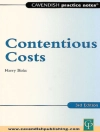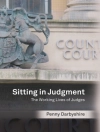The focus of this book is on the epistemological and hermeneutic implications of data science and artificial intelligence for democracy and the Rule of Law. How do the normative effects of automated decision systems or the interventions of robotic fellow ‘beings’ compare to the legal effect of written and unwritten law? To investigate these questions the book brings together two disciplinary perspectives rarely combined within the framework of one volume. One starts from the per...
Mục lục
Acknowledgements; Mireille Hildebrandt and Jeanne Gaakeer.- Prefatory remarks on Human Law and Computer Law; Mireille Hildebrandt.- Part I − Law and Code.- 1 Prefatory rem...
Mua cuốn sách điện tử này và nhận thêm 1 cuốn MIỄN PHÍ!
Ngôn ngữ Anh ● định dạng PDF ● Trang 202 ● ISBN 9789400763142 ● Kích thước tập tin 2.2 MB ● Biên tập viên Mireille Hildebrandt & Jeanne Gaakeer ● Nhà xuất bản Springer Netherland ● Thành phố Dordrecht ● Quốc gia NL ● Được phát hành 2013 ● Có thể tải xuống 24 tháng ● Tiền tệ EUR ● TÔI 2788559 ● Sao chép bảo vệ DRM xã hội












